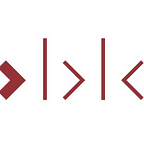Meditation and Metaphorical Pancakes: Exploring the philosophy and physics of time with metaLAB
Creative workshop encourages hands-on experience to create questions about time
by Grace McFadden
The philosophy of time can be introduced quite simply, according to Harvard Physicist Jacob Barandes: all it takes is a stack of pancakes.
Barandes was a guest speaker at “The Mysteries of Time in Physics and Philosophy,” the second in the Creative Workshop series that metaLAB is offering this summer designed and led by Sarah Newman, Director of Art & Education at metaLAB at Harvard, and supported by Olivia Tai, a student at Harvard College and research assistant at metaLAB. The workshop brought together sixty attendees from seventeen different countries.
The event began with Barandes discussing presentism and eternalism, two different theories of how time works. This discussion formed the basis of a hands-on creative exercise led by Newman and Tai to explore the “mysteries of time.”
Barandes framed time as follows: “Think of each layer in the stack as a successive moment in time. Roughly speaking, if you’re standing still, you’re at the same place in each successive pancake. You’re at the same place in the bottom pancake, the next pancake, the next pancake.”
Presentism, explained Barandes, can be thought of as the idea that we all experience the same pancake at the same time. This universal present, which Barandes likened to a hot pancake, is the only one in which we exist. This also means that neither the future nor the past is real.
Barandes then explained how Einstein’s theory of special relativity serves as a challenge to presentism, which he also referred to as the A Model of time.
“The special theory of relativity says we do not all experience pancakes the same way,” Barandes said.
As explained by Barandes, Einstein’s theory of special relativity says that because the speed of light is constant regardless of the observer, there are repercussions for how time happens to each person. He said that the familiar, everyday laws of physics dictate that if someone threw a baseball on an airplane, a person outside the airplane would perceive the baseball to be moving at the combined speed of the throw and the airplane.
“But if you shine a light with the flashlight on the airplane, what Einstein said was, you on the airplane will perceive light travelling at the speed of light. Someone on the ground looking up will also see light going at the same constant speed. Light doesn’t combine. This is a very weird thing, it means that somehow time and space have to change,” Barandes said.
Space and time being relative and interconnected serves as a challenge to the idea that the present is experienced universally.
“Maybe the most profound weirdness here is that if you’re moving relative to someone else, then your pancake slices are not horizontal. Your pancake slices are slightly diagonal. So you don’t slice the pancakes horizontally anymore. If you’re moving, you slice the pancakes a little bit diagonally,” Barandes said. “And if different observers in different states of motion slice the stack of pancakes differently, that’s a challenge to the notion that one pancake slice is the ‘hot’ one for everybody. So that’s a challenge to presentism.”
Eternalism, which, Barandes explained, is known as the B Model, holds that the past, present, and future are all equally real.
The talk by Barandes primed the audience to form questions about time. Newman then guided participants through exercises to explore their own questions about time.
Tai guided the audience through a short meditation. The object, explained Tai, was to experience time in a different way than we usually do in our busy lives.
“The experience of time can feel very different when you are turning your intention inwards rather than outwards,” Tai said.
As part of the pre-work to the event, participants were encouraged to spend 90 seconds creating a timeline of their lives, which they had the opportunity to share with others during the workshop. Newman then prompted the group to write down things they “knew”,“believed”, and “didn’t know”. Participants were then asked to do the same exercise, except focusing on their knowledge of time.
From there, participants used these thought experiments to generate two of their own questions about time, which formed the foundations of the final steps of the workshop: exploring these questions visually by drawing them, and then creating physical sculptures to represent their ideas.
In preparation for the event, participants had been asked to spend ten minutes gathering materials ranging from “something that changes in time” to “two things that rhyme with each other.” After choosing one of their questions about time, participants created a sculpture to represent their question using the objects they gathered prior to the event.
Sculptures created by participants sought to explore questions such as “Could we have a functioning society without a supposedly objective passage of time, measured by clocks?” and “What would it look like if we perceived space as time and vice versa?” The resulting prototypes from the event were made of materials including lichen, incense, dice, and a bedspring.
Newman’s methodology for her creative workshops emphasizes the importance of asking questions, the value of interdisciplinary perspectives on hard topics, and then using found materials to physically wrestle with these abstract ideas. This allows workshop attendees to free their thinking when it comes to concepts that can be difficult to conceptualize. The event received positive feedback from attendants, one of whom said that “time passed at light-speed” during the workshop.
The final event in the Creative Workshop series, entitled “Telegrams to Telepathic Memos: The Future of Trust and Truth Online,” was held on June 25. The metaLAB team will be displaying the creations from this workshop series here.
